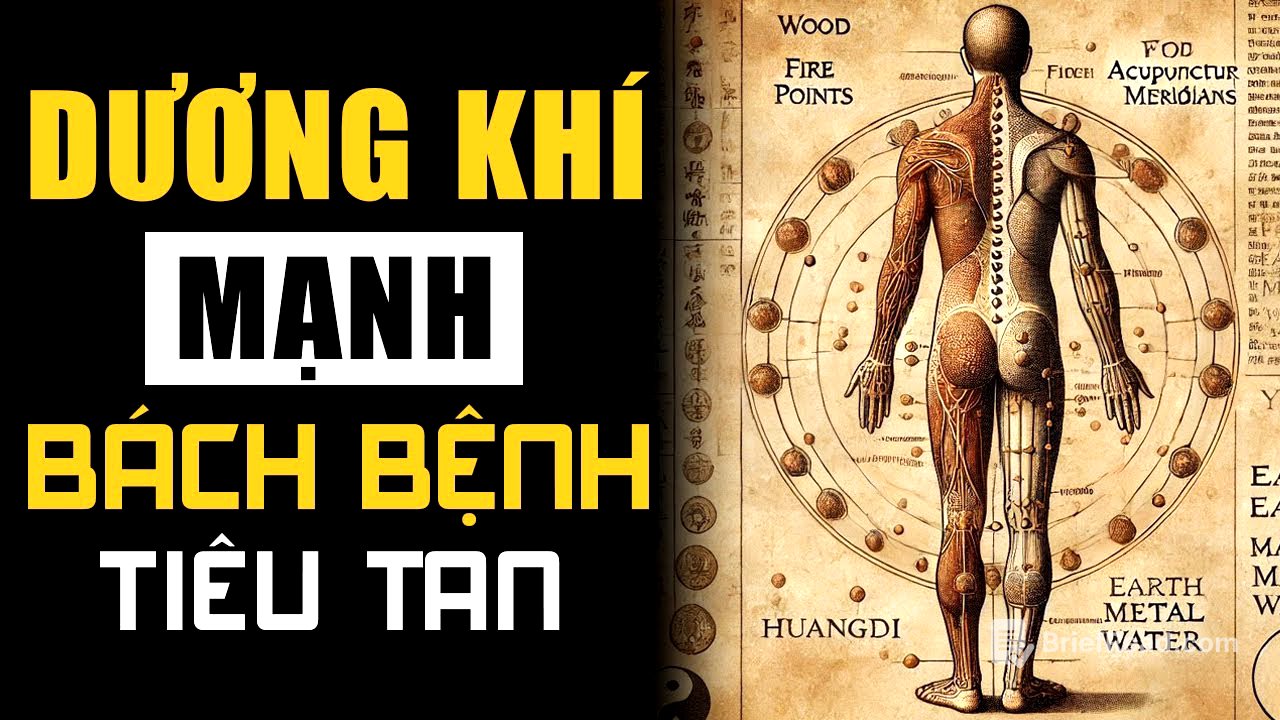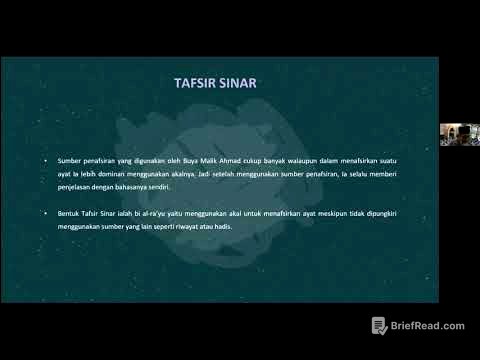TLDR;
This video explores the concept of Yang energy in Eastern medicine, emphasizing its importance for health, longevity, and overall well-being. It explains how to protect and nourish Yang energy through traditional health-preserving sayings, identifies common mistakes that harm it, and provides five methods to replenish it. The video aims to guide viewers in living harmoniously with nature to achieve peace and a long, healthy life.
- Importance of Yang energy for overall health and longevity.
- Common habits that deplete Yang energy.
- Practical methods to nourish and protect Yang energy.
Introduction: The Importance of Yang Energy [0:00]
The video starts by highlighting the significance of health as the greatest asset in life, emphasizing that health preservation, especially of Yang energy, is crucial. Yang energy is described as a treasure that enables humans to thrive. The video references "The Yellow Emperor's Inner Canon," where Emperor Xuanyuan discusses with physician Qi Bo why ancient people lived longer and healthier lives compared to modern individuals, attributing it to living in accordance with natural rhythms and moderation.
Three Traditional Health-Preserving Sayings [1:50]
The video introduces three sayings related to health preservation: "real fire god," "weapon of destruction," and "the fate of the yang is weak." "Real fire god" advises against arguing in the morning and overeating, as the body's Yang energy is just beginning to rise. "Weapon of destruction" refers to avoiding strenuous activities at noon to prevent depletion of vital energy, recommending a nap instead. "The fate of the yang is weak" warns against excessive consumption of Yang energy, which can endanger health.
The Origin and Significance of Yang Energy [3:55]
The video emphasizes that Yang energy is the origin of human life, something we are born with and should protect. It explains that in Eastern medicine, "yin forms form, yang transforms into qi, yang deficiency causes all diseases," meaning Yang energy produces Qi, and its deficiency leads to various health issues. Modern lifestyles often damage Yang energy, leading to symptoms like oily skin, cold limbs, and sleep disturbances. The video also notes that in oriental medicine, the spirit is the first thing to look at when examining a patient.
Behaviors That Harm Yang Energy [6:52]
The video identifies several behaviors that harm Yang energy. These include exposure to "poisonous wind" from air conditioning, washing hair in the morning, and disrupting the balance of work and rest. It also warns against consuming cold food and drinks, which can damage the spleen and stomach, and excessive intake of fruits, which are cooling and can impair digestive functions. Additional factors include anxiety, excessive material desires, unreasonable exercise, dressing in a way that exposes important points (ankles, navel), immoderate sex, late childbirth, cold air in the delivery room, excessive heat causing dryness, and abusing drugs that damage Yang energy.
Five Methods to Nourish Yang Energy [31:40]
The video shares five methods to nourish Yang energy: joy generates Yang, kindness generates Yang, exercise generates Yang, purify the mind and preserve Yang energy, and receive natural sunlight. It explains that happiness and positive emotions boost Yang energy, while anger depletes it. Doing good deeds and living a virtuous life also contribute to Yang energy. Exercise promotes blood circulation and generates Yang, but it should be appropriate for one's constitution and timed correctly. Purifying the mind through hobbies and maintaining a good mood are essential for preserving Yang energy. Finally, exposure to natural sunlight is vital, as it provides essential energy for the body.









